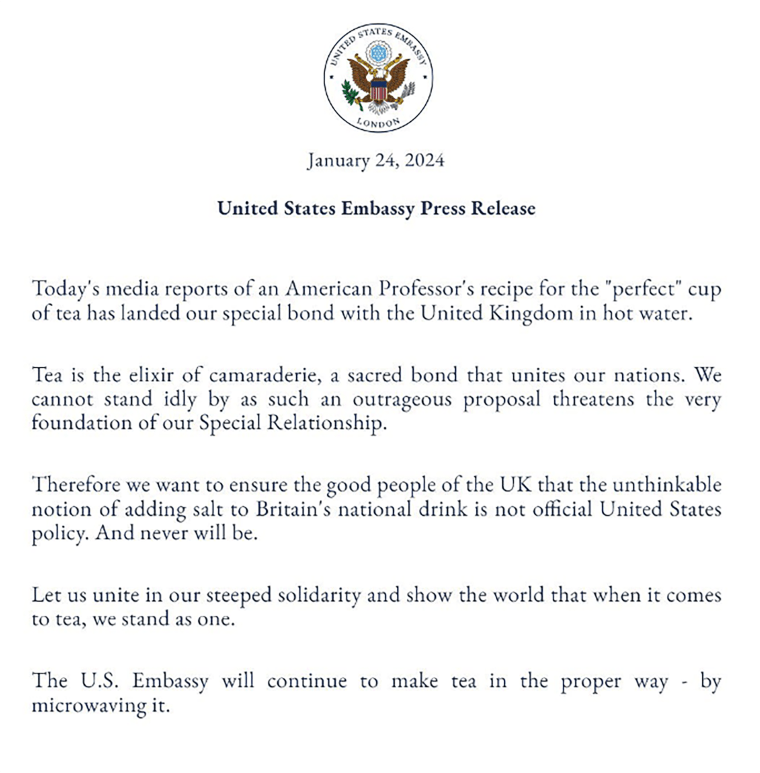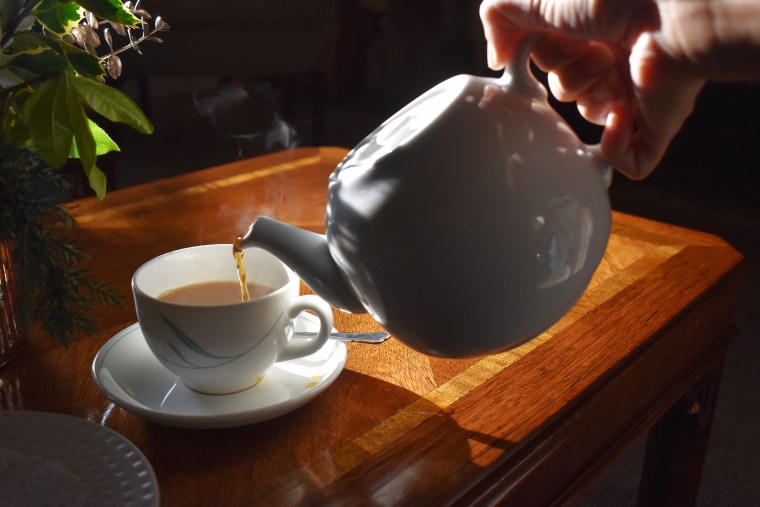LONDON — The combination of tea and salt has again threatened acrimony between the United States and Britain.
Just as the Boston Tea Party caused outrage in the 18th century, when a shipment of the precious stuff was thrown into the briny harbor, some committed British tea drinkers were again appalled Wednesday by an American suggesting mixing the two — not as a protest, but to improve the taste.
Though the controversy is likely to be little more than a storm in a teacup on the diplomatic front, the U.S. Embassy in London nonetheless stepped in to cool brewing British fears, assuring them that the “unthinkable notion” was not official U.S. policy.
Michelle Francl, professor of chemistry at Bryn Mawr College in Pennsylvania, set off the scandal in a new book that argues the sodium in salt counteracts the chemical process that makes tea taste bitter.
“Steeped: The Chemistry of Tea,” published by the U.K.’s Royal Society of Chemistry on Wednesday, draws on centuries of tea lore and modern chemical analysis. It also argues that the addition of lemon can remove the unsightly dark coloration that can sometimes appear on the surface of tea.
All this is close to sacrilege for the people of the United Kingdom, who are thought to drink about 100 million cups of the stuff every day — about 1.5 per person — but do so without many splashes of creativity.
The vast majority of Britons make their brew the same way: very hot (not quite boiling) water from an electric kettle poured over a single tea bag in a mug, with the common addition of milk and, for some, sugar.
Some expressed their disbelief on social media at Francl’s suggestion, while the American chemist’s conclusions were derisively covered by Britain’s notoriously unforgiving media.
“A scientist from the country where you can find tea being made with lukewarm water from the tap claims to have found the recipe for a perfect cuppa,” The Guardian newspaper wrote, using a British colloquialism.
The U.S. Embassy in London was quick to get involved in the debate, with a lighthearted statement gently poking fun at this most British of obsessions.
“Today’s media reports of an American Professor’s recipe for the ‘perfect’ cup of tea has landed our special bond with the United Kingdom in hot water,” the embassy said.
“Tea is the elixir of camaraderie, a sacred bond that unites our nations. We cannot stand idly by as such an outrageous proposal threatens the very foundation of our Special Relationship,” it continued.
The embassy added that it “will continue to make tea in the proper way — by microwaving it.”

British people were aghast to learn in 2020 that some Americans use a microwave to make what is sometimes referred to as “hot tea.”
The resulting debate was so heated that both Britain’s and the United States’ respective ambassadors were moved to trade tips on making the perfect hot beverage.
Some other, less controversial advice in Francl’s book includes a suggestion to steep tea bags in hot water quickly and to preheat mugs.
Francl writes that tea is the world’s most popular drink, after water, with an estimated 2 billion cups drank every day, made with some 5 million tons of leaves harvested annually.
Francl did not immediately respond to a request for comment.

